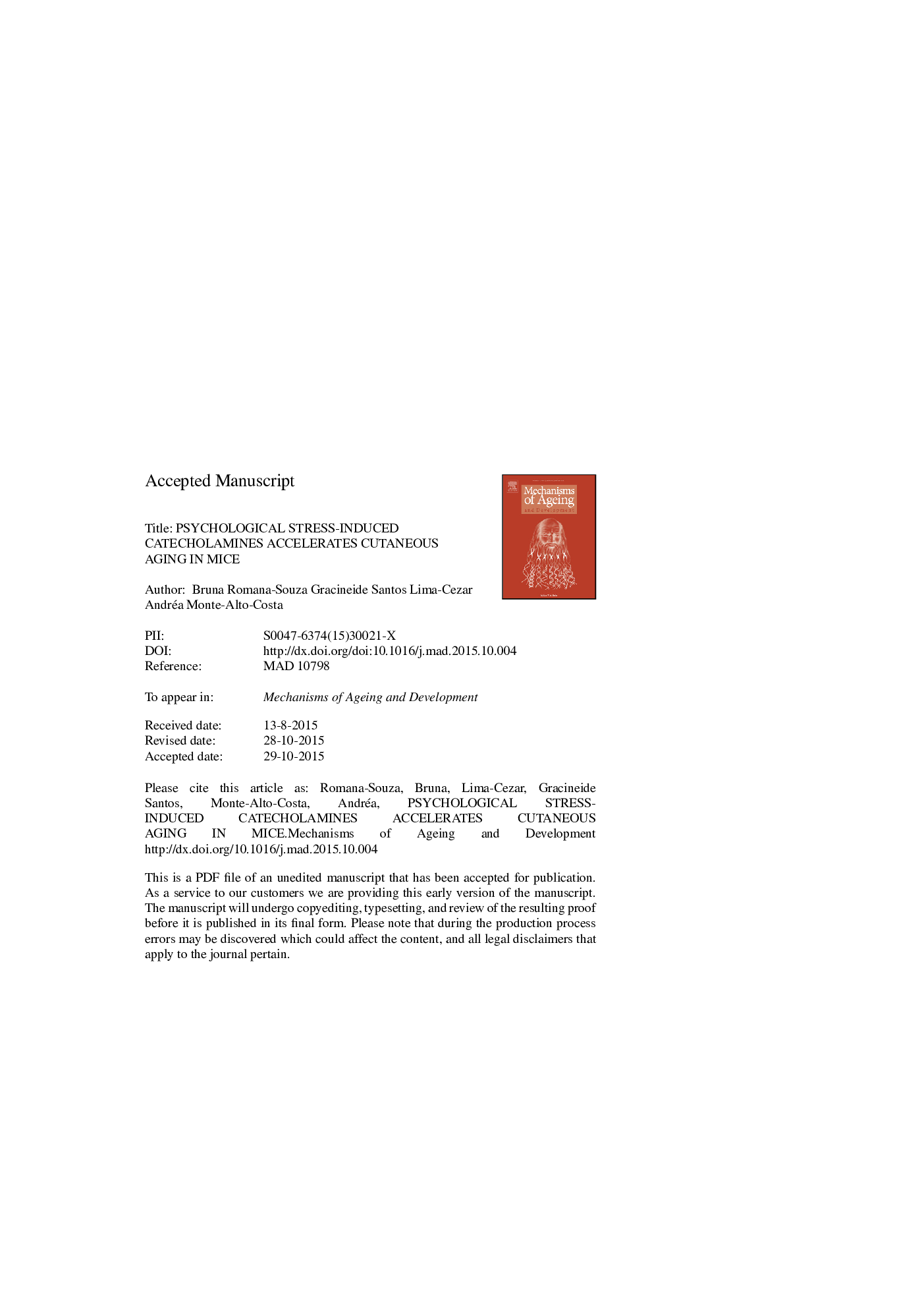| Article ID | Journal | Published Year | Pages | File Type |
|---|---|---|---|---|
| 8284812 | Mechanisms of Ageing and Development | 2015 | 34 Pages |
Abstract
Psychological stress may be an important extrinsic factor which influences aging process. However, neither study demonstrated the mechanism by which chronic stress participates in skin aging. Aim of this study was to investigate the effects of chronic psychological stress on mice skin. Mice were daily submitted to rotational stress, for 28 days, until euthanasia. After 28 days, mice were killed and normal skin was analyzed. Macroscopically, dorsum skin of chronically stressed mice presented more wrinkled when compared to that of nonstressed mice. In mice skin, chronic stress increased lipid peroxidation, carbonyl protein content, nitrotyrosine levels, neutrophil infiltration, neutrophil elastase, tissue inhibitor of metalloproteinase-1 and metalloproteinase-8 levels. Nevertheless, chronic stress reduced dermis thickness, collagen type I, fibrilin-1 and elastin protein levels in mice skin. In in vitro assays, murine skin fibroblasts were exposed to elevated epinephrine levels plus inhibitors of reactive oxygen species (ROS) and reactive nitrogen species (RNS), fibroblast activity was evaluated in a short time. In skin fibroblast culture, treatment with inhibitors of ROS and RNS synthesis abolished the increase in carbonyl protein content and lipid peroxide accumulation induced by epinephrine. In conclusion, chronic psychological stress may be an important extrinsic factor, which contributes to skin aging in mice.
Related Topics
Life Sciences
Biochemistry, Genetics and Molecular Biology
Ageing
Authors
Bruna Romana-Souza, Gracineide Santos Lima-Cezar, Andréa Monte-Alto-Costa,
